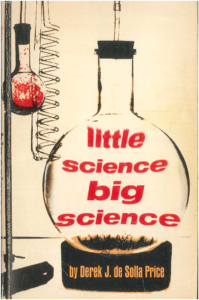 A colleague recently asked me to point him to “an authoritative definition of ‘pharmaceutical industry’.”
A colleague recently asked me to point him to “an authoritative definition of ‘pharmaceutical industry’.”
The term is one that few have tried to define, perhaps thinking that there is no need. I have searched the many books on my shelves that deal with the iniquities of drug companies, and the few that praise them or are neutral, and have found no definitions. In a few cases an index will cross-reference “pharmaceutical industry” to “drug companies”, but that’s as far as it goes.
The website of the Association of the British Pharmaceutical Industry (ABPI) states that the association represents “innovative research based biopharmaceutical companies, large, medium, and small”, which could be taken as a definition. And the US Census Bureau has defined the US pharmaceutical industry as “companies engaged in researching, developing, manufacturing, and marketing drugs and biologicals for human or veterinary use”.
However, I think that to refer to “the pharmaceutical industry” as if it was a single entity is misleading. There are large and small pharmaceutical companies; companies that deal primarily in new compounds, in some cases specialising in biologics; companies that deal primarily in what are loosely called “generics”; companies that deal primarily in over the counter medicines; and small companies that spearhead investigations of new compounds before handing them over to bigger companies to develop and market. Some companies do more than one of these things.
The large companies that are at the forefront of innovation have enough similarities to warrant lumping them together under the heading of “Big Pharma”, a term that is usually treated as a singular noun and was first used at the start of the 1990s to refer to large multinational pharmaceutical companies collectively. This includes companies such as AstraZeneca, GlaxoSmithKline, Johnson & Johnson, Merck & Co, Novartis, Pfizer, Roche, and Sanofi—companies that are big by any standards, and certainly as judged by their global sales.

The use of the word “big” in this sense mirrors its use in terms such as “Big Agriculture”, “Big Business”, “Big Oil”, and “Big Tobacco”. Not to mention “Big Science”, a concept that started to become popular in the 1960s, following an article in Science by the physicist Alvin M Weinberg and Derek de Solla Price’s exquisite little book Little Science, Big Science, based on his 1962 George B Pegram lectures (picture).
The problem in defining ”the pharmaceutical industry” lies not in the word “industry” nor in the word “pharmaceutical”, but in the word “the”. For a small word, it uses up a lot of dictionary space. In the print version of the second edition of the Oxford English Dictionary “the” takes up four pages and has three separate entries, as a demonstrative adjective and pronoun, an obsolete relative pronoun, and an adverb. The first of these has 34 sections and about 60 subsections. The etymology and variant forms alone consume nearly a page.
The demonstrative adjectival form of “the” is also called the definite article, for good reason. In its general use, it signifies or marks an object already mentioned or known or, as the dictionary puts it, contextually particularised. “A drug” is some drug. “The drug” is a specific drug.
James Joyce ended Ulysses with “the least forceful word I could possibly find . . . the word ‘yes’, which is barely pronounced, which denotes acquiescence, self-abandon, relaxation, the end of all resistance.” When searching for a word with which to end Finnegans Wake, known simply as Work in Progress when fragments of it were being published, he found “the word which is the most slippery, the least accented, the weakest word in English, a word which is not even a word, which is scarcely sounded between the teeth, a breath, a nothing, the article the.” But “the” punches above its weight. It reifies the noun to which it is attached. When politicians, for instance, talk about “the international community” they want us to think that such a thing exists. Talking about “the pharmaceutical industry” suggests likewise.
Jeffrey Aronson is a clinical pharmacologist, working in the Centre for Evidence Based Medicine in Oxford’s Nuffield Department of Primary Care Health Sciences. He is also president emeritus of the British Pharmacological Society.
Competing interests: None declared.
